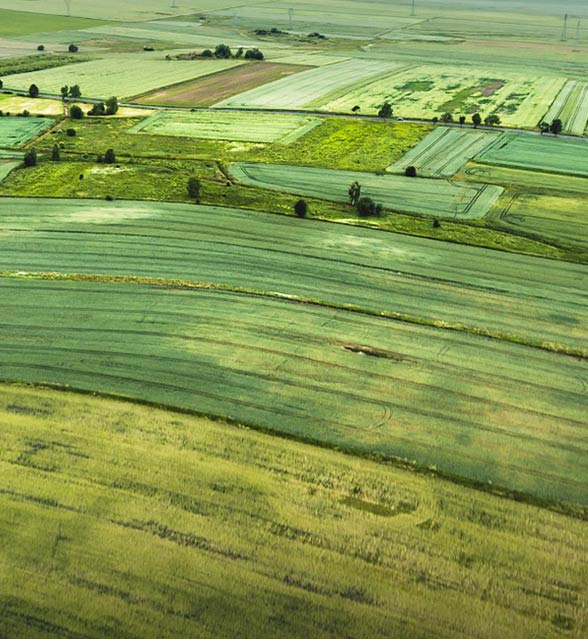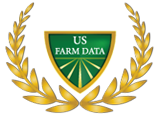PERCENTAGE OF SMALL
MEDIUM AND LARGE FARMS IN THE U.S.

U.S. Sees Fewer, Larger Farms
In 2017, there were approximately 2.05 million farms across the country, down from 12,000 the previous year, according to the USDA.
The amount of land used for crops, pastures
or grazing declined 1 million acres—to 910 million acres—from 2016 to 2017. While the average farm size has been increasing approximately two acres per farm each year since 2012, the
number of farms is decreasing. Today, the average farm size is 444 acres.
671,000 farmers managing small acreage farms vs. 46,000 farmers managing large farms. That’s a big
difference.
The USDA reports that approximately 50 percent of all farms have less than $10,000 in sales; 80 percent have less than $100,000 in sales; and 8 percent have sales
of $500,000 or more.
Family farms continue to play a significant role in U.S. agriculture. In 2015, family farms accounted for 99 percent of all U.S. farms and 89 percent of
production. That same year, 90 percent of U.S. farms were considered small family operations with less than $350,000 in annual gross cash farm income (GCFI). These small operations accounted
for 24 percent of the value of production. Large family farms, with at least $1 million in GCFI, made up 2.9 percent of U.S. farms but accounted for 42 percent of the value of production.
Nonfamily farms accounted for 11 percent of agricultural production.
Family farms in the U.S. produce food for people at home and abroad. In fact, about 25 percent of U.S. farm
products by value are exported each year with one farm feeding up to 165 people annually.
GET COUNTS OF PERCENTAGE OF SMALL
MEDIUM AND LARGE FARMS IN THE U.S. TODAY

Empower your business with insights from US Farm Data
Whether your market is large farms or family farms, our database of over 2.5 million U.S. Farmers and Ranchers can provide unique insights for your business in a matter of minutes.
START SEARCHING
SEARCH PERCENTAGE OF SMALL
MEDIUM AND LARGE FARMS IN THE U.S.

US FARM DATA®
US Farm Data is your best source for Farmers and Ranchers
The US Farm Data database is build for research, sales, and marketing. It doesn’t matter if you target small family farms or the biggest farms and ranches, you can find them all at US Farm Data. Start with a free search of our database or call us to find niche databases like acreages or horse farms.



